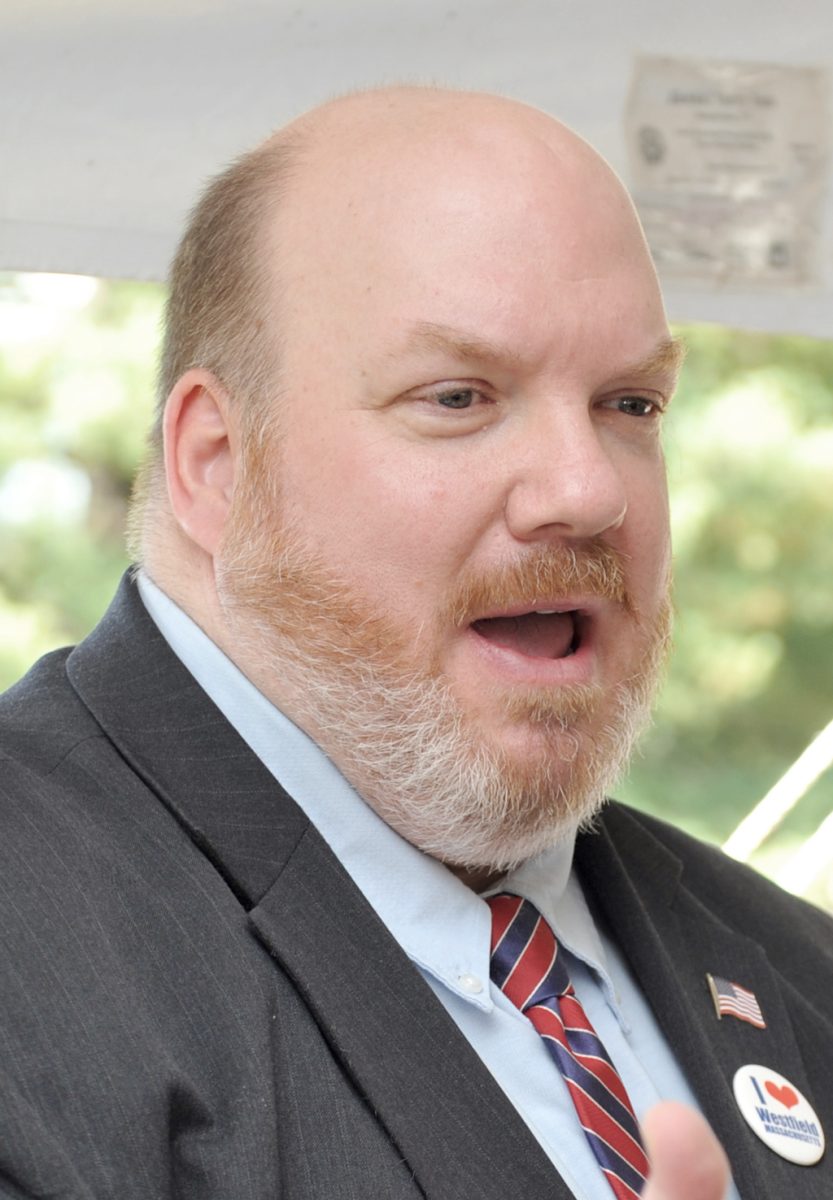WESTFIELD – State Sen. Donald F. Humason (R-Westfield) said clean energy, the growing opioid epidemic and looming budget negotiations head the Massachusetts legislative agenda.
Humason attended Gov. Charlie Baker’s first ever State of the State address on Beacon Hill last week.
Baker’s energy policy includes hydroelectric, natural gas, solar and renewables. Humason said Baker has been working with other New England governors to hash out a 20-year compact with Hydro-Quebec.
Humason said some environmentalist opposed the Hydro-Quebec plan who fear the deal will “knock” other renewables “off the table”, like solar and wind. He cautioned environmentalist not to worry about the impact the deal might have on the renewable energy sector.
In a recent article, Commonwealth Magazine cited increased energy costs, local job losses, “and harming the growing clean energy sector” associated with the proposed Hyrdo-Quebec compact. The legislature would have to approve the agreement.
Humason said the legislature and the governor remain steadfast in addressing the growing opioid epidemic. Besides the stress on schools, hospitals, police departments and public safety, he said the increase in the use of opiates impacts all socioeconomic groups, young and old, rich and poor.
“We’re in conference trying to hammer out the differences in our two versions,” he said.
A key component is increased access to treatment for addicts. Treatment beds in Berkshire, Franklin and Hampshire Counties are lacking, said Humason.
“Even here in Hampden County, there’s limited treatment. You end up having to go toward Rhode Island or Boston to try to find anything,” he said.
He called, as has the governor, for tighter controls on dispensing legal opioids by physicians. The governor wants to limit the amount of opioids dispensed at one time.
“Doctors are pushing back a little bit. Insurance companies are pushing back,” he said.
Baker also proposed legislation that would have allowed doctors to commit patients to involuntarily drug treatment. The governor proposed a 72-hour hold to a treatment facility for persons who posed a danger to themselves or to others.
Humason said treatment, whether mandatory or not, takes weeks or months to make any headway. The conversation on opioid abuse is not limited to urban centers, but spoken about in all corners of the state and the nation, he said.
Small town police forces and fire departments are faced with fighting the growing epidemic. He added that the small police departments often lack jail cells.
“It’s not just an urban issue anymore, it crosses other strata,” said Humason.
The current proposed legislation, he said, will “only scratch the surface” and that more needs to be done in Massachusetts. Humason believes the Commonwealth continues to lead the fight in combating opioid addiction.
The City of Westfield recently received a $7,500 Massachusetts Department of Public Health grant to purchase additional Narcan kits. The kits will be available on all fire engines and support vehicles. When administered properly, Narcan can revive an overdose victim within seconds.
In a recent development, U.S. Sen. Edward Markey (D-MA) is blocking the president’s nomination to head the Food and Drug Administration (FDA). In 2015, the FDA approved guidelines for doctors to administer prescription opioids to children as young as 11 years old.
In budget news, Humason said the estimated $350 million revenue shortfall has been revised downward. The Commonwealth still expects a $200 million drop in revenues. He remains optimistic the gap will shrink with a steadily improving economy.
“By the end of the year we should be ok,” he said.


